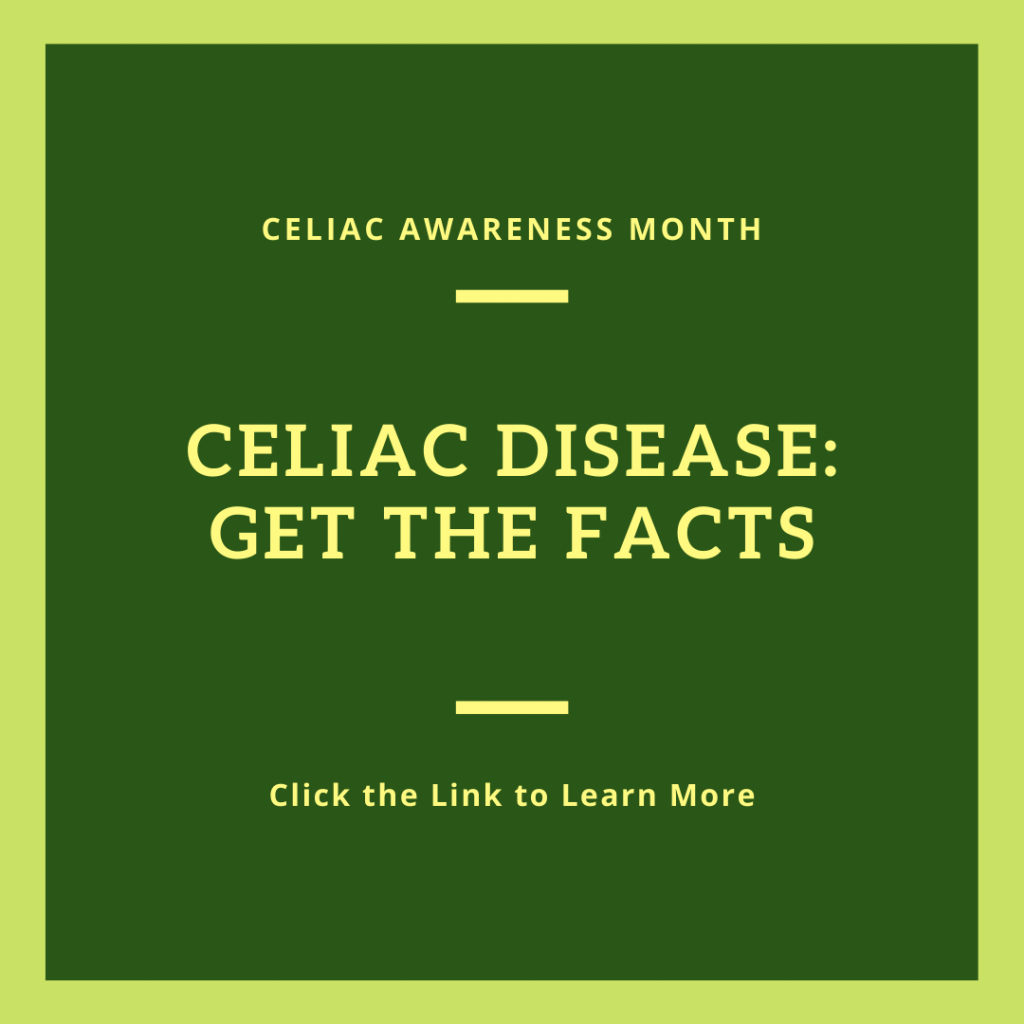23 May Celiac Long-term and Symptoms

May is Celiac Disease Awareness Month
Celiac disease is a genetic autoimmune disorder in which the ingestion of gluten, the protein found in wheat, barley, and rye, leads to serious damage in the small intestine, creating long-term health complications.
Celiac disease can develop at any age.
People with celiac disease have a 2x greater risk of heart disease, and a 4x greater risk of developing small intestine cancers.
Long-term effects of untreated Celiac disease include:
- Iron deficiency anemia
- Coronary artery disease
- Early onset osteoporosis or osteopenia
- Type I diabetes
- Migraines
- Poor growth
- Infertility and miscarriage
- Central and peripheral nervous system disorders
- Pancreatic insufficiency
- Gall bladder malfunction
- Non-Hodgkin’s lymphoma
- Esophageal cancer
- Thyroid cancer
- Melanoma
Symptoms of Celiac disease:
There are more than 200 known Celiac disease symptoms.
Celiac disease symptoms can occur in the digestive tract or other parts of the body.
Adult symptoms of Celiac disease:
- unexplained iron-deficiency anemia
- fatigue
- bone or joint pain
- arthritis
- osteoporosis or osteopenia
- liver and biliary tract disorders
- depression or anxiety
- peripheral neuropathy
- migraines
- seizures
- missed menstrual periods
- infertility or recurrent miscarriage
- canker sores inside the mouth
- dermatitis herpetiformis
Child symptoms of Celiac disease:
- abdominal bloating and pain
- chronic diarrhea
- vomiting
- constipation
- pale, foul-smelling, or fatty stool
- iron-deficiency anemia
- weight loss
- fatigue
- irritability and behavioral issues
- dental enamel defects of the permanent teeth
- delayed growth and puberty
- short stature
- failure to thrive
- Attention Deficit Hyperactivity Disorder
If you think you or your child might have celiac disease, speak to your doctor about testing.